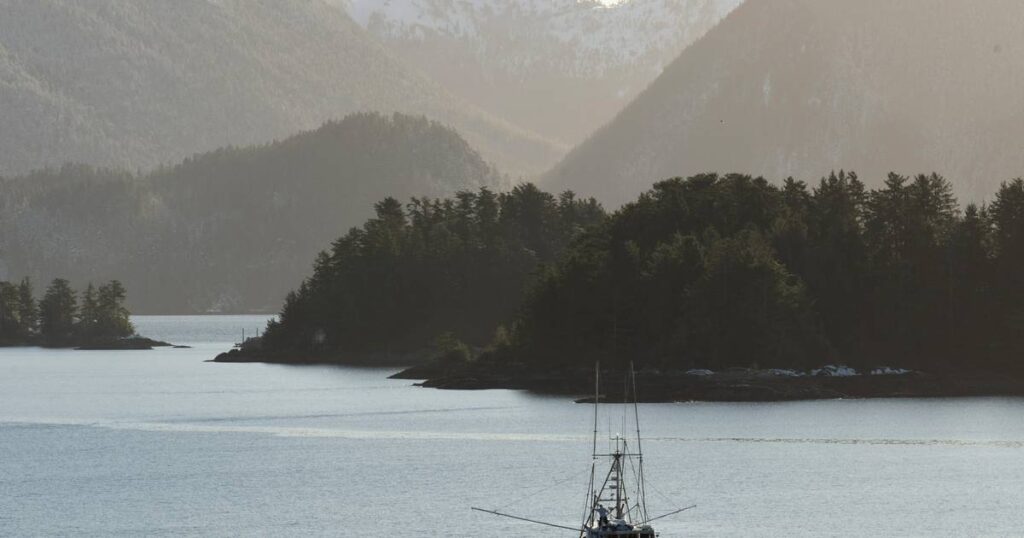![]()
Recent fish news shows once again that Alaska fishermen have a rare advocate in Rep. Mary Peltola, who has introduced two bills focused on funding NOAA's bycatch reduction program and advancing important regulations on trawl fishing gear.
Wild seafood provides food security and livelihoods across the country, and nowhere is that more true than in Alaska. We are fortunate to have leaders who are not only committed to the fishing industry themselves, but also courageous enough to lead tough conversations about our biggest challenges.
In the North Pacific, this includes bycatch management and habitat protection, which are not only the foundation for sustainable management but also a key part of climate resilience. We saw the complete disappearance of two of Alaska's signature crab species and the disappearance of subsistence fisheries in major rivers that house communities highly dependent on these resources for food. We witnessed the sudden and dramatic decline of cod in the Gulf of Alaska after the 2014-2016 marine heatwave. As fish stocks and ocean conditions change more rapidly and dramatically than ever before, protecting the health of our oceans requires conservation tools that can keep up with the pace of change.
For years, Alaska's subsistence, commercial and recreational fishers have called on the North Pacific Fishery Management Council for meaningful action to protect our fish stocks and fish habitat. Countless constituents have expressed concerns about the impacts of large-scale trawl fishing on an ecosystem that is becoming increasingly fragile due to climate change. The federal fisheries management process is intentionally slow and careful, but the nature of these issues makes it even slower. The harsh reality is that impacts are rapidly outpacing action, and we cannot afford to wait.
Rep. Peltola, like most Alaska fishermen, sees the need for action. She also recognizes the importance of management ultimately being driven by the Regional Management Council and its stakeholder process. That’s why her bill focuses on driving progressive change in the region by funding the bycatch reduction engineering programs already underway by the North Pacific fishing fleet and calling on the Council to do the important work of clearly defining the capabilities and limitations of trawl gear.
The latter has been of particular concern to Alaskans over the past few years. Trawl fishing accounts for 97% of the North Pacific's fisheries, meaning that if trawl fishing is causing unassessed negative impacts to habitats and fish stocks, the potential for harm is significant. This is a primary concern in regulating trawl gear that contacts the seabed.
Pelagic trawls, often described as “mid-water” trawls, operate farther from the ocean bottom and away from the sensitive habitats and organisms that inhabit it. This is why, in theory, pelagic trawls are permitted to operate in areas and at times when bottom trawl fishing is prohibited. The North Pacific pelagic trawl fleet primarily harvests pollock, the largest food fish on the planet. They have also been found to spend significant amounts of time in contact with the ocean bottom. In fact, the Council's analysis estimates that capture vessels and capture and processing vessels spend up to 60% and 100% of their time in contact with the ocean bottom.
North Pacific regulations do not limit the time that pelagic trawls are in contact with the seabed, nor do they define pelagic trawl operations in terms of their proximity to the seabed. This is a major flaw in our sustainability matrix, and one that Mary is seeking to fix.
As an Alaskan and commercial fisherman, I am grateful to have lawmakers who understand the value and potential of our fisheries and are taking meaningful steps to protect them. These conversations push us to be leaders in sustainable fishing, learn from challenges, and innovate. This is our fishing community's work to navigate unprecedented times, and good stewardship looks like tough conversations about how we adapt and improve today so we can all fish tomorrow.
Linda Behnken is a commercial fisherman from Sitka and executive director of the Alaska Longline Fishermen's Association.
Opinions expressed here are those of the author and are not necessarily endorsed by the Anchorage Daily News, which welcomes a wide range of viewpoints. To submit an article for consideration, email commentary(at)adn.com. Submissions of under 200 words may be sent to letters@adn.com or click here to submit from any web browser. Read our complete guidelines for letters and commentary here.



